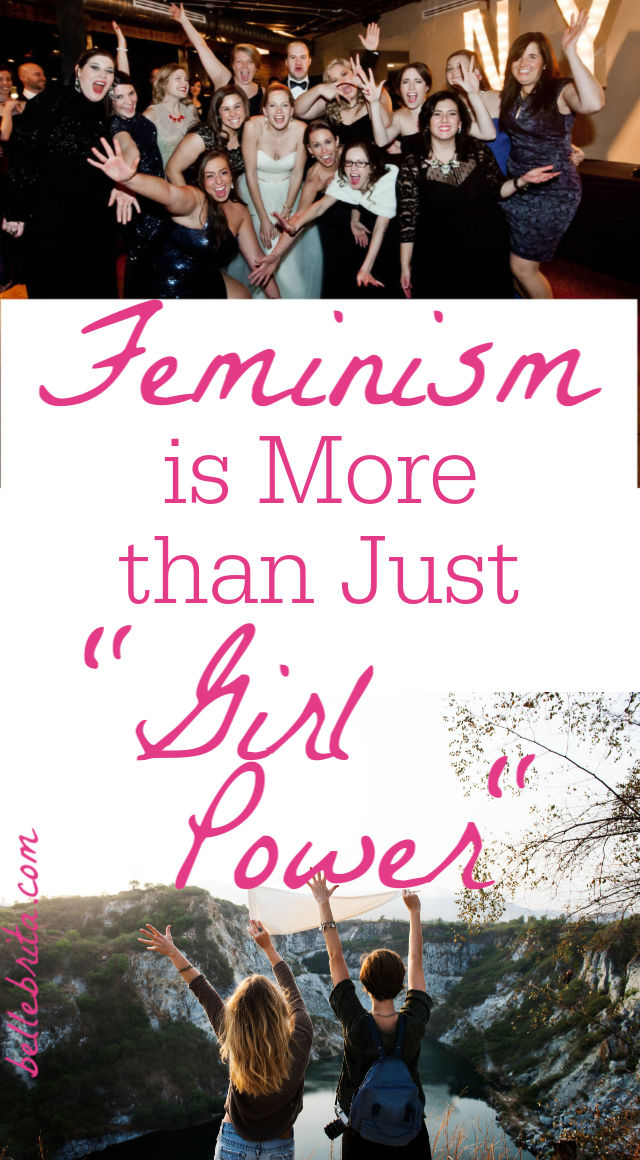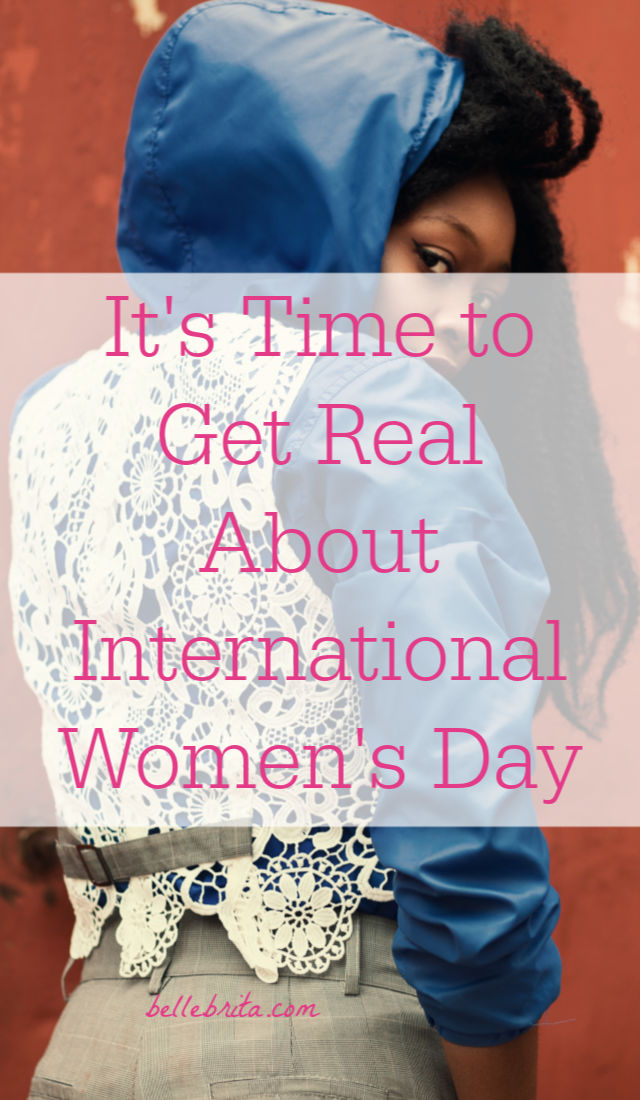International Women’s Day! Women’s History Month! Girl power, woo!
Right?
If you spent any time on the Internet on March 8th, you probably saw at least a few dozen posts about International Women’s Day. While versions of this holiday date back to 1909, the actual “international” part of the day really started to spread in 1975 when the United Nations formally recognized–and began sponsoring–International Women’s Day. (Read more about the history on Wikipedia).
Personally, I’ve really only seen people mention International Women’s Day on social media for the last five years or so. This year it felt particularly popular, but personal perceptions can be misleading.
When I first started seeing people post to social media about International Women’s Day, I felt pretty happy to see it so widespread. But as I continued to see more Instagram photos, tweets, and Facebook posts, my feelings became more mixed.

First of all, I kept seeing the same few quotes over and over.
Here’s to strong women. May we know them. May we be them. May we raise them. – Unknown.
That’s a good quote. Very inclusive. Short and to the point.
Who run the world? Girls! -Beyoncé
Y’all know I love me some Beyoncé. She’s a badass feminist who straight-up performed in front of the word FEMINIST. As much as I love her girl power anthem “Run the World (Girls),” that’s only the tip of the feminist iceberg known as Beyoncé’s discography.
Why I continued to see these two quotes over and over again, I can’t say. But the more I read them, the more disappointed and disillusioned I felt by the celebration of International Women’s Day.
Why?
A few reasons.
- Many of these people have not previously posted anything about the importance of empowering women.
- The vast majority of these posts avoided the words “feminist” and “feminism.”
- The vast majority of these posts completely lacked any depth or critical thinking. They were a Ginger Spice soundbite of “girl power!”
Again, to emphasize, these three points were not true for every single tweet, photo, status, or article I read about International Women’s Day. I saw some beautiful and sobering truth bombs on reproductive rights and violence against women. But overall, these more thoughtful posts were the minority.

I don’t ask that everyone become a Brita protege. You don’t need to read up on feminist issues daily, send out a weekly newsletter on feminism (sign up for it here!), and routinely write about feminist topics.
But regardless of how you feel about the words “feminist” and “feminism,” if you truly care about gender equality, then you need to do a little more than share a few pretty words on “girl power” one day a year.
There are a lot of ways you can get started to work for gender equality.
Educate Yourself
You’re in luck, because I’ve written a ton of resources for you already. If you’re not familiar with any of the following concepts, check out my introductory posts.
Talk to Your Kids about Sexism
For better or for worse, you are not the only influence in your children’s lives. They’re going to learn from the examples (and prejudices) set by marketing, their friends, TV, church, movies, their teachers, books, and so much more. I’ve specifically addressed how to talk to your tween about feminism. You can also check out the blog Pigtail Pals and Ballcap Buddies for tons of resources on age-appropriate conversations about equality.
Call Out Sexism
Look, I get it. It sucks standing up to your friends and family. It feels awkward to ask them to refrain from using gendered slurs or to point out they just made a really sexist remark.
But if you have a daughter, let me tell you what will happen if you don’t.
She’ll come crying to you at 11 or 12 because her younger brother just called her a whore. You’ll try to gently explain that he doesn’t know what that word means. You’ll insist that you’ll talk to your son about his language and why that word is hurtful. But when you don’t actually punish him, or your other son who actually taught your youngest that word, your daughter will lose trust in you. Then when she’s sexually assaulted, and constantly sexually harassed, she won’t tell you. Because you’ve already taught her that she just has to deal with it, that boys who sexually harass and sexually assault girls won’t face any repercussions for their actions.
And if you think that sounds far-fetched, that is my story. At 28, it’s easy for me to realize I could have told my parents when one of my classmates sexually assaulted me in middle school. At 12, I was barely more than a child, and the way they handled my brother calling me a whore completely destroyed my belief that they would always protect me.
If casual sexism doesn’t bother you, fine. But do you really want that example for your nieces and nephews, sons and daughters? Do you really want any child to grow up hearing misogynistic language? I don’t want any child to think it’s okay to call someone else a whore. More than that, I don’t want any child to just accept that she will regularly be called a whore. Call out sexism when you hear it.
Honestly, there’s a lot more you can do for gender equality, but these 3 actions are a good place to start.
What other suggestions do you have for newbie feminists or other people interested in empowering women?

I’m not generally a vocal person in work but this week I had to make a comment to a new guy about the use of the word ‘girl’ to describe me and another female coworker – if you’re over 18 we aren’t girls. We are women, ladies, or even better use my frickin’ name. The second time, he was trying to serenade me with a song. I shut him down by basically saying “that’s weird and creepy especially since you know I’m married so it’s really just squicky. If you don’t stop I will be walking down to HR and filing a complaint. ”
Ugh…I avoid him now since I just can’t even.
I definitely get frustrated when people use the word “girl” when they would use the word “man” in the same situation. I only say “girls” to refer to women if it’s an affectionate thing with my close friends, like a girls’ night. And when I’m being affectionate about my husband, or my brothers, or my brothers-in-law, I call them boys.
I’m really glad that you stood up for yourself at work. It can be so tricky to navigate how to call out sexism in the workplace.
A person of note in my life doesn’t like the word feminism and yet got really mad last night when the men’s choir sang a comedy song about men’s choir, involving a note about how “at least they don’t sound like girls,” complete with holding effeminate stances. Seeeems we have a conflict of beliefs here.
I assume you’ve heard the comedy bit from Aziz Ansari on identifying as a feminist?
“If you believe that men and women have equal rights, if someone asks if you’re feminist, you have to say yes because that is how words work,” he said. “You can’t be like, ‘Oh yeah, I’m a doctor that primarily does diseases of the skin.’ Oh, so you’re a dermatologist? ‘Oh no, that’s way too aggressive of a word! No no not at all not at all.'”
It cracks me up every time!
excellent places to start! and you’re right, there should be more of this, than just a quote as a social media status once a year. i admit, i never heard of it until a few years ago.
I don’t really think it became much of a “thing” in the States until a few years ago. I’m not even sure when I first heard of it. 2012, maybe?
I love this so much!
Thank you!